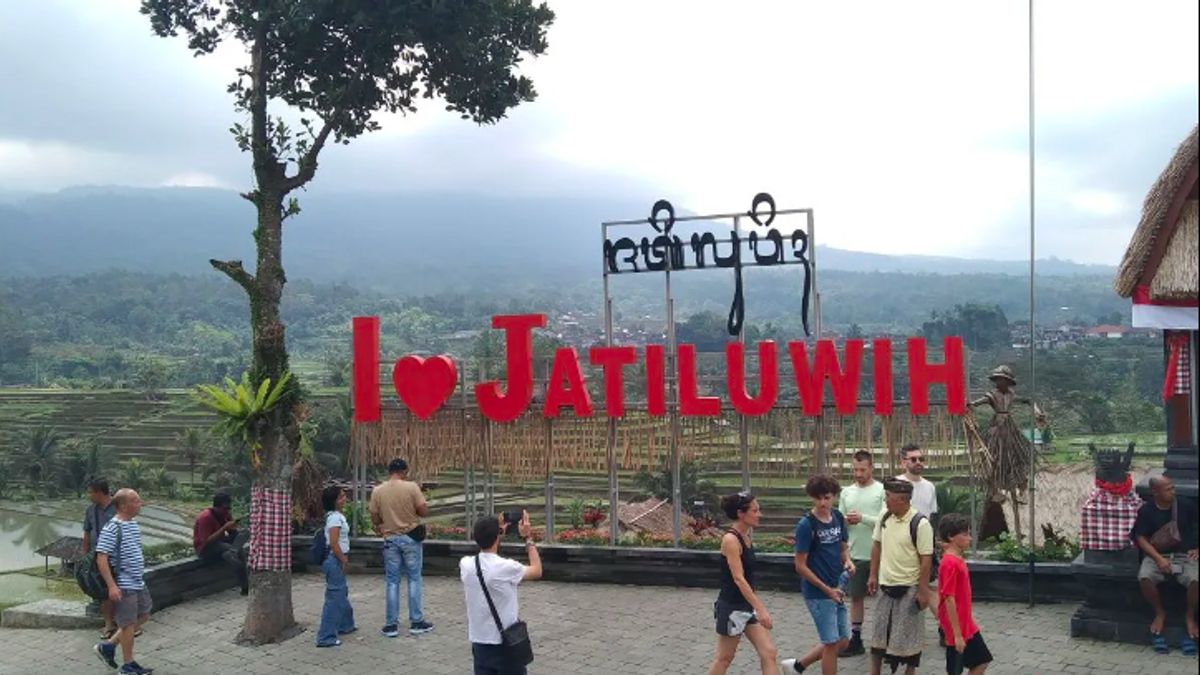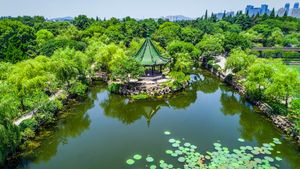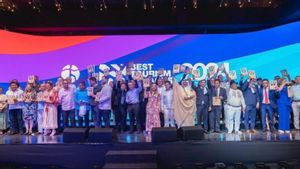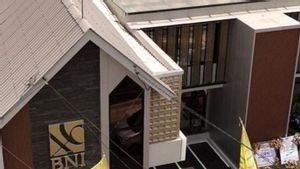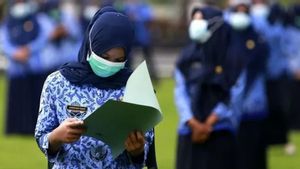JAKARTA - The Jatiluwih Village Tourism Attractive Management (DTW) in Tabanan Regency, Bali, has taken regenerative steps to preserve the environment, culture, and improve the welfare of the community.
This effort was made in response to the award received by the village from the United Nations World Tourism Organization (UNWTO), which marked the importance of tourism sustainability in the region.
"The purpose of these regenerative steps is to ensure the benefits of tourism can be felt more widely. Tourists not only come to enjoy natural and cultural beauty, but also have a role in supporting the preservation of culture and welfare of the local community," explained DTW Jatiluwih Manager, I Ketut Purna, during an interview in Denpasar, Bali, as quoted by Antara.
Various regenerative initiatives implemented in Jatiluwih Village include preservation of subak systems, development of environmentally friendly infrastructure, and inviting tourists to participate in natural conservation efforts and support organic agriculture.
In addition, community empowerment is also carried out through training to improve the quality of handicrafts, development of traditional culinary arts, and improvement of houses for residents that can be used as homestays for tourists.
I Ketut Purna added that the philosophy of local wisdom of Tri Hita Karana, which emphasizes the balance between humans, nature, and spirituality, is the basis that brings this village to recognition as one of the world's best tourist villages.
The subak system, which is a community-based irrigation management technique that has existed since a thousand years ago, plays a major role in this achievement. Subak is not only an irrigation technique, but also a symbol of harmonization between humans and nature.
"This award motivates us to continue to maintain harmony between humans, nature and spirituality, as well as to be responsible for ensuring this village develops sustainably and regeneratively," he said.
SEE ALSO:
In 2012, Jatiluwih Village and its subak system have been recognized by UNESCO as a World Heritage Site. Until now, the most frequent areas of rice fields carrying the subak system have remained the identity of Jatiluwih Village, although it is growing as a tourist destination.
On November 15, 2024, UNWTO announced that Jatiluwih Village was selected as one of the 55 best tourist villages, after competing with more than 260 tourist villages from 60 countries. The assessment was carried out based on nine indicators, including natural and cultural resources, cultural conservation and promotion, social sustainability, economy, and the environment, as well as infrastructure and safety aspects.
In addition to Jatiluwih Village, a similar award was also received by Wukirsari Village in Imogiri, Bantul, DI Yogyakarta.
The English, Chinese, Japanese, Arabic, and French versions are automatically generated by the AI. So there may still be inaccuracies in translating, please always see Indonesian as our main language. (system supported by DigitalSiber.id)
